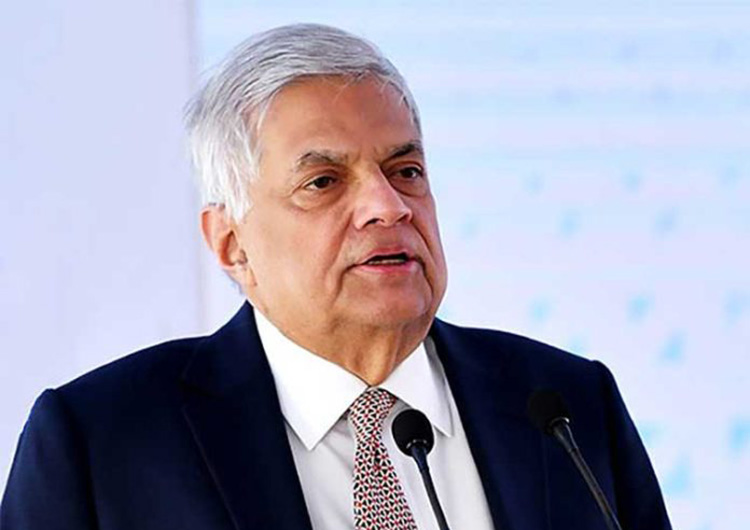M. D. H. Seneviratne, our brother, known as MDH or Senevi to his friends passed away on the 28th of March after a brief illness. He had suffered a stroke, but his mind was alert almost to the last.
We miss him every day, for if ever we wanted the spelling or meaning of a word, or a clarification of some statement we would refer to him; he was like a talking dictionary to us. He gave us the meaning of the word, the etymology and often some anecdote related to the use or misuse of the word- so we never forget it. We think it comes from the discipline he had got from home. Ayya was several years older to us, he went to the university when we were schooling, and even started working before we entered the university.
When we were schooling his ‘association’ was more with our parents. Our parents were both Sinhala School Head Teachers, who took their job seriously. They spent the early part of their professional life in what is known as remote schools, Serankada, (Bibile) Perawella (Welimada) Malmaduwa (Kegalle). Learning under his parents, he had got through what was known as Prarambha, (equivalent to Senior Schools Certificate), when he was 13 years old,when he joined Ananada College, Colombo at Grade 8, he had already got through his Senior Secondary examination! Many of our generation entered school at the age of three, and we were 8 years old when we were in grade 5! -Nothing lost, we are sure!
One of our fondest memories of home, was going to bed listening to the literary competition among the three of them-mother, father and ayya. One would say the number of a verse from Selalihini or Subhashithaya, and the other would recite it in the correct vrutha – for example the samudragosha vrutha. Then he/she would we say a number of a stanza and the other would recite it. Sometimes it was prose, a part of a dialogue, and the other would have to respond in the exact words. And so, it was a routine on many days. Our association of Sinhala literature, the reference to books, history, sloka, sutta, etc., were on these informal events. We now remember the experience and some of the reference, not been proficient to hand it over, as they did.
Ayya, like most graduates started his career as a teacher, and taught at Central College, Madampe, and Bandaranaike Maha Vidyalaya, Gampaha. Among his distinguished pupils were, Jayamaha of the CAS, and Handun Wickremesinghe who contributed to the field of Arts and Drama. There were several students of his who continued to visit him, he enjoyed their company, and it made him happy to see them.
He moved out from teaching and took to administrative jobs which often had to do with public relations. He was Publications Officer, Coconut Research Institute, Publishing Assistant -Lake House, both English and Sinhala), Consultant Publications, Sri Lanka Export Development Board, Advertising Copywriter in English and Sinhala for all media. Being a Cost Accountant, he was employed in the Industrial Management field; was General Manager, Ceylon Hardware Corporation, and later National Packaging Materials Corporation.
Ayya authored some significant books.
His first attempt Yuropeeya Dayadaya won him the UNESCO prize for International Understanding for the year 1958. His book, Nuthana Europaya (1962), was a text book for many who offered European history at the time. Aparadiga Atheethaya the same year, was equally popular with students and scholars. ‘Me Yanne Koi Paare was full of meaningful insights.
When we consider the volume of work he has done, we, as sisters feel ashamed of ourselves. We now wonder how did he find the time, amidst his jobs and other duties -which we say take all our time! He has translated several books – Afro Asian States and Their Problems, by Panikkar, A History of Modern Europe by A. Scheville, A Reign of Ten Kings by Nalini de Lanerolle, (Dasa Raja Puwatha). He has translated A Fall of Moondust – by Arthur C. Clarke, (Chandra Sancharakayo)-We would say that it was his favourite, and Ali Para -the Elephants’ Walk. Then there are the more utilitarian, National Export Development Plan 1990-1994, A Trainers’ Handbook- Mahaweli Area Co-operative Development (ILO Project), Achievement Motivation Training, Handbook for Trainers-Small Enterprises Development Division, Ministry of Youth Affairs, (ILO) and Dianetics -L. Ron Hubbard. And as if to give a sense of completion, he has translated The Way of the Buddha from Sinhala to English for Upali Publications.
He enjoyed Hindi music/songs and could sing songs from many old Hindi films – Awara, Bauji Bawra, Aan and Deedar. He was a good raconteur, whose company was much enjoyed, and his company will be missed by all. And sorrowing, we look back; our ayya is no more. Is it so? Does he not live with us, every time we think of him, for he truly lived for something other than himself, as his volume of work shows. Such people do not die. He would have related to us an anecdote and laughed out, in his half cynical, half indulgent way –namgochchan nodhirathi.
Those to whom he was near and dear will grieve, and continue to grieve, the sisters, Lokunangi (Chandra), Podi nangi (Jayanthi), Sudunangi (Sita), and wife (Vasantha) and daughters (Sandya and Sakuntala). May his journey in Samsara be short and may he attain the supreme bliss of Nirvana!
Sita Rajapakse





